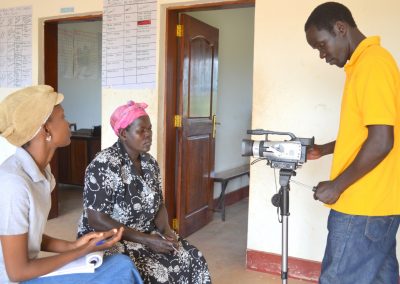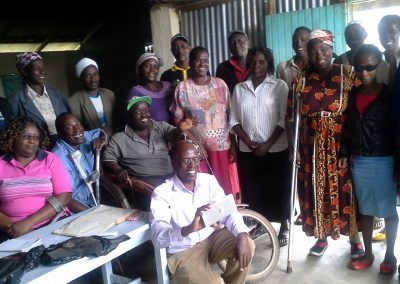Transparency and Accountability
Transparency and Accountability is not only a goal in itself but also a prerequisite for successful development in many areas. Access to accurate information about the environment, private sector, government and public services, policies, budgets and goals is the foundation of well-founded decisions and action.
What is Transparency & Accountability?
SPIDER defines transparency as the availability of accurate information about various issues and the commitments and performance of actors.
Accountability is holding institutions and actors accountable for their commitments and performance.
Transparency & Accountability in relation to Sustainable Development Goals
The availability of information is key to achieving effective, accountable and transparent institutions at all levels (SDG 16.6). ICTs are indispensable to sharing, managing and transmitting large quantities of data and reaching a multitude of stakeholders.

SPIDER’s approach to Transparency & Accountability
SPIDER’s aims to build Transparency & Accountability through four interlinked steps:
Information
Support collection and sharing of information about the state of the natural environment, laws, regulations and procedures and the commitments and performance of various actors.
There must be a demand for the information.
Access
Support actors to make data or information accessible to other relevant actors and broader public.
Access means: 1) easy to find, browse and search,
2) available to download in digital format and
3) easy to understand through data stories or visualisations.
Action
Support various actors to use data in their work to inform priorities, planning and awareness raising or change campaigns.
Feedback
Use evidence based advocacy and data to engage with duty bearers (government, private sector or other actors) on a particular issue to affect a change.
The role of ICT in Transparency & Accountability
ICTs plays a central role in each of the four steps of Transparency & Accountability. Data must be digital and adhere to Open data standards and be available in at least one digital format.

Information
Collecting and compiling information in a systematic manner that adheres to Open Data standards is impossible without digital tools.
Access
Digital formats make data easy to search, analyse, compile and share. There are many tools that are helpful in visualising data and information.
Action
Supporting organisations to use evidence based advocacy, learn how to use and tell stories with data and information.
Feedback
Identifying the existing feedback mechanisms and enhancing these through ICT.
SPIDER supports
- Gathering and sharing needed information in an accessible and useable format (Open Data standards)
- Development, localisation and use of ICT tools for the four steps (Information, Access, Action and Feedback)
- Support to use data and evidence based advocacy and engagement with duty bearers
SPIDER does not support
- Informing about T&A or access to information in general but not working with particular issues or providing information
- Publishing of information that is not based on needs of actors in the field
- Development of platforms that are not connected to existing channels of information or workflows.
- Platforms or technical solutions that do not take into account the needs and skills of the users.
Let’s collaborate!
ICT4D/ICT4T&A insights
Project/programme collaboration
Networks
Resources
If you have anything you think we should share, please contact us.












